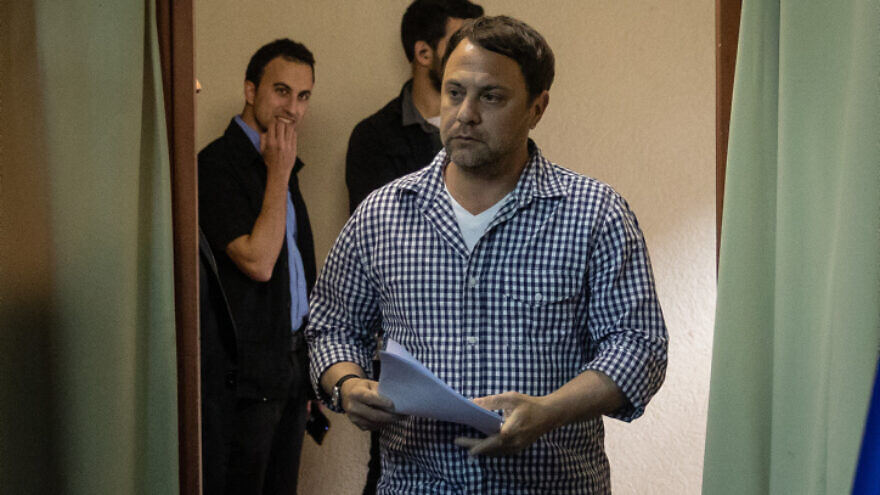Tel Aviv Magistrate’s Court Judge Ala Masarwa on Wednesday approved “measured” and “well-defined” searches of cell phones belonging to aides of Israeli Prime Minister Benjamin Netanyahu. The decision came following a complaint by one aide that police had committed “illegal acts” in their searches of his phone.
Netanyahu is being investigated in connection with three separate corruption cases, one of which, Case 4000, involves allegations that he granted regulatory benefits to Bezeq telecommunication’s primary shareholder and family friend Shaul Elovitch in exchange for favorable coverage on the Walla News, which Elovitch owns. Former Netanyahu aid and campaign manager Shlomo Wilbur turned state’s witness in the case.
Two of Netanyahu’s top media advisers, Jonatan Urich and Ofer Golan, in addition to another two Likud campaign staffers, are suspected of ordering a loudspeaker-equipped van to Filber’s home in August, which Likud activists at the scene used to broadcast a message calling on Filber not to betray Netanyahu. The activists filmed the incident as a campaign stunt.
Filber reportedly alerted the police to the event, but according to his lawyer did not file a criminal complaint. However, police opened a criminal investigation.
After receiving the letter, Mandelblit requested an official response from the Israel Police.
In his ruling, Judge Masarwa agreed that there were “major flaws” in the investigation, which he said had infringed on the aides’ rights, but he granted police a search warrant for the phones due to what he said was reasonable and strong suspicion the defendants were involved in a conspiracy to harass a witness.
“Even after considering the infringement on the rights of the suspects and the flaws in the investigation, I decided, after deliberating, to accept the applicants’ request for the measured search warrants that offer a ‘surgical’ and well-defined search, under close judicial supervision,” wrote Masarwa.
Among the serious flaws in the police handling of the case, he wrote, were “the search and seizure of phones without prior court order” and the use of “unspecified demarcation of search functions and boundaries.” Additionally, he agreed with the defense that the suspects should have been informed of their right to refuse a search.


























